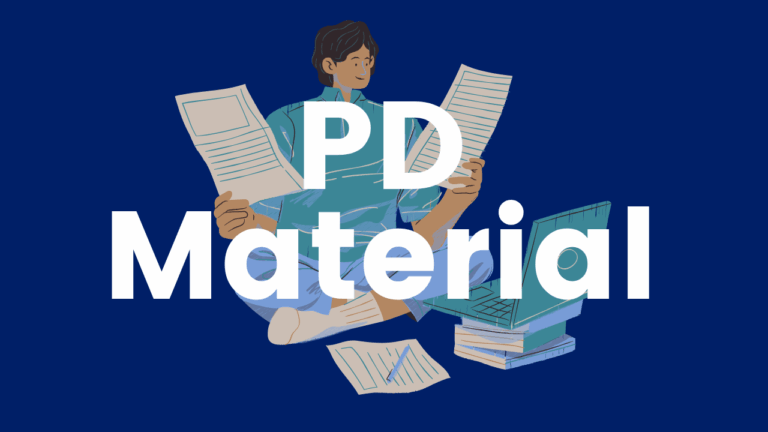Explicit Instruction Videos – Primary and Junior/Intermediate
Dr. Anita Archer models explicit instruction across multiple content areas (decoding, vocabulary, comprehension, writing, etc.). Each video has an accompanying viewer guide.

Dr. Anita Archer models explicit instruction across multiple content areas (decoding, vocabulary, comprehension, writing, etc.). Each video has an accompanying viewer guide.

This facilitator’s guide is designed to assist professional learning communities (PLCs) in applying evidence-based strategies to help K-3 students acquire the language and literacy skills needed to succeed academically. This document is a support for educators watching the IES videos of foundational language and literacy instruction.

The Knowledge and Practice Standards define the knowledge and skills that all teachers of reading should possess to teach all students to read proficiently. These competencies can be used to guide professional development for educators.
In this episode of the popular Reading Road Trip podcast, Dr. Holly Lane, the Director of the University of Florida Literacy Institute (UFLI), unpacks key considerations for teaching foundational reading and writing skills.
This webinar will support educators in determining oral reading fluency goals, specifically for accuracy and rate, and how to provide instruction for these goals in a small group setting. Michael Hunter provides examples of assessment with a focus on accuracy, error tracking using decodable texts, and how to provide small group instruction to first improve accuracy followed by rate. This webinar will support educators of all grade levels working with students to improve oral reading fluency with connected text.
Explicit Instruction expert, Dr. Anita Archer, provides the rationale and overview of explicit instruction and its benefit for students. Archer provides a quick 5 minute overview of what Explicit Instruction is and isn’t, with concise and kind language. This resource can be used to for professional development and to begin discussion between educators on Explicit Instruction.
Put Reading First is a comprehensive guide to evidence-based reading instruction. Intended for educators and administrators, this guide aims to improve reading outcomes for children in the early grades.Chapter 1 provides an overview of the essential components of effective reading instruction, such as phonemic awareness, phonics, fluency, vocabulary, and comprehension. Chapter 2 focuses on the critical early stages of reading development, emphasizing the importance of explicit instruction in phonological awareness and phonics.Chapter 3 highlights the significance of developing automaticity and prosody in reading to enhance comprehension.Chapter 4 delves into the importance of vocabulary, teaching word meanings and strategies to foster word learning.Chapter 5 explains techniques for enhancing understanding, including active engagement, monitoring, and metacognition.Practical strategies for classroom instruction include using explicit and systematic phonics lessons, providing ample opportunities for guided oral reading, incorporating vocabulary-building activities, and promoting meaningful discussions to enhance comprehension.
In this International Dyslexia Association Perspectives article, Judith C. Hochman and Natalie Wexler discuss why writing is challenging and how educators can teach these skills effectively to their students. They discuss sentence-level activities, embedding writing instruction in content knowledge, and how to prepare students for lengthier writing.
A key component of the 2023 Language curriculum is explicit, systematic instruction. In this book, experts Anita Archer and Charles Hughes share the foundations of explicit instruction, how to design lessons based on subject skills/strategies as well as vocabulary/concepts, organizing for and delivering instruction, and providing appropriate independent practice – going from I do, to we do, to you do. This book is incredible learning for classroom educators as well as special education teachers/interventionists, and can be applied to any subject or grade level. Helpful lesson templates/checklists can be downloaded and reproduced.
Etymonline is a free online etymology dictionary that provides information about the origins and historical development of words in English. It offers detailed explanations of word origins, meanings, and changes over time, often tracing words back to their earliest recorded usage. This resource can help educators and students understand how words have evolved and diversified throughout history, as well as help understand the orthography and morphology of words.

Funding for ONlit.org is provided by the Ministry of Education. Please note that the views expressed in these resources are the views of ONlit and do not necessarily reflect those of the Ministry of Education.
© 2025 ONlit. All rights reserved.